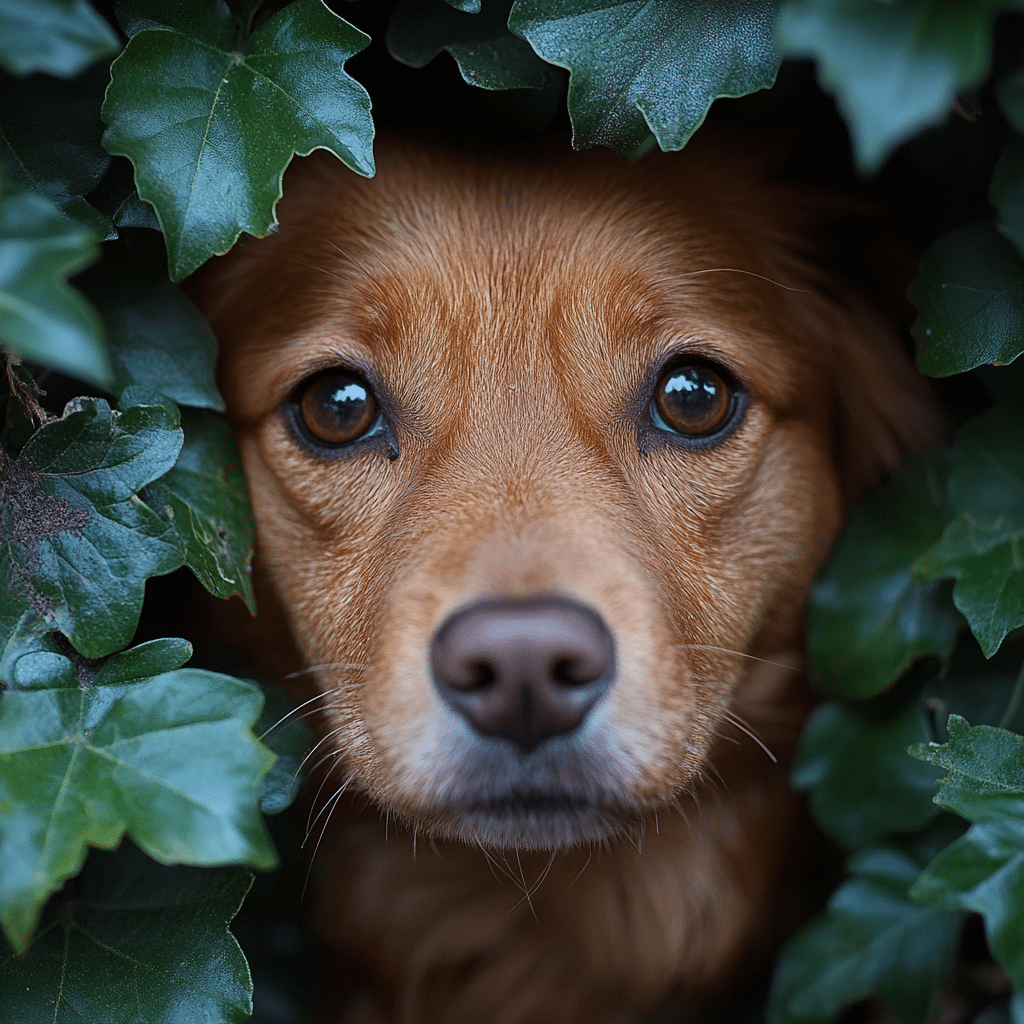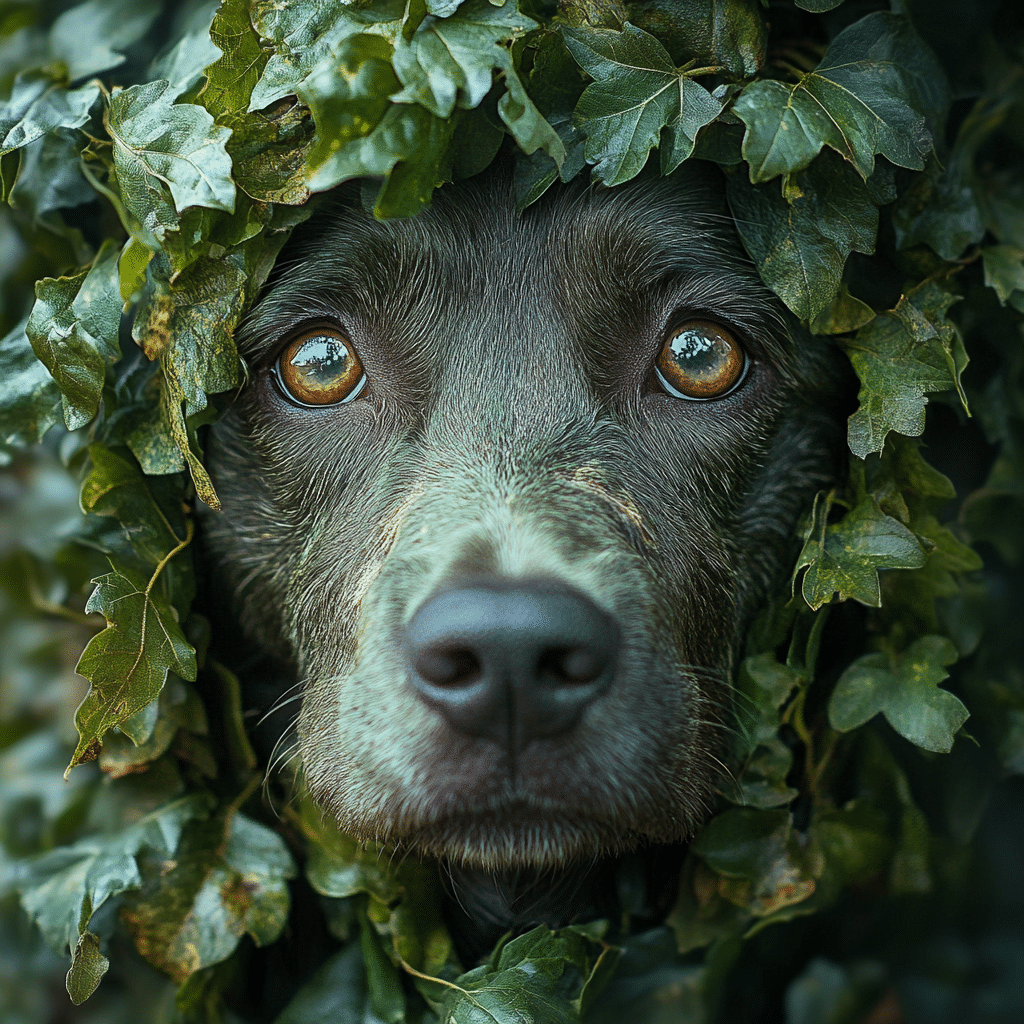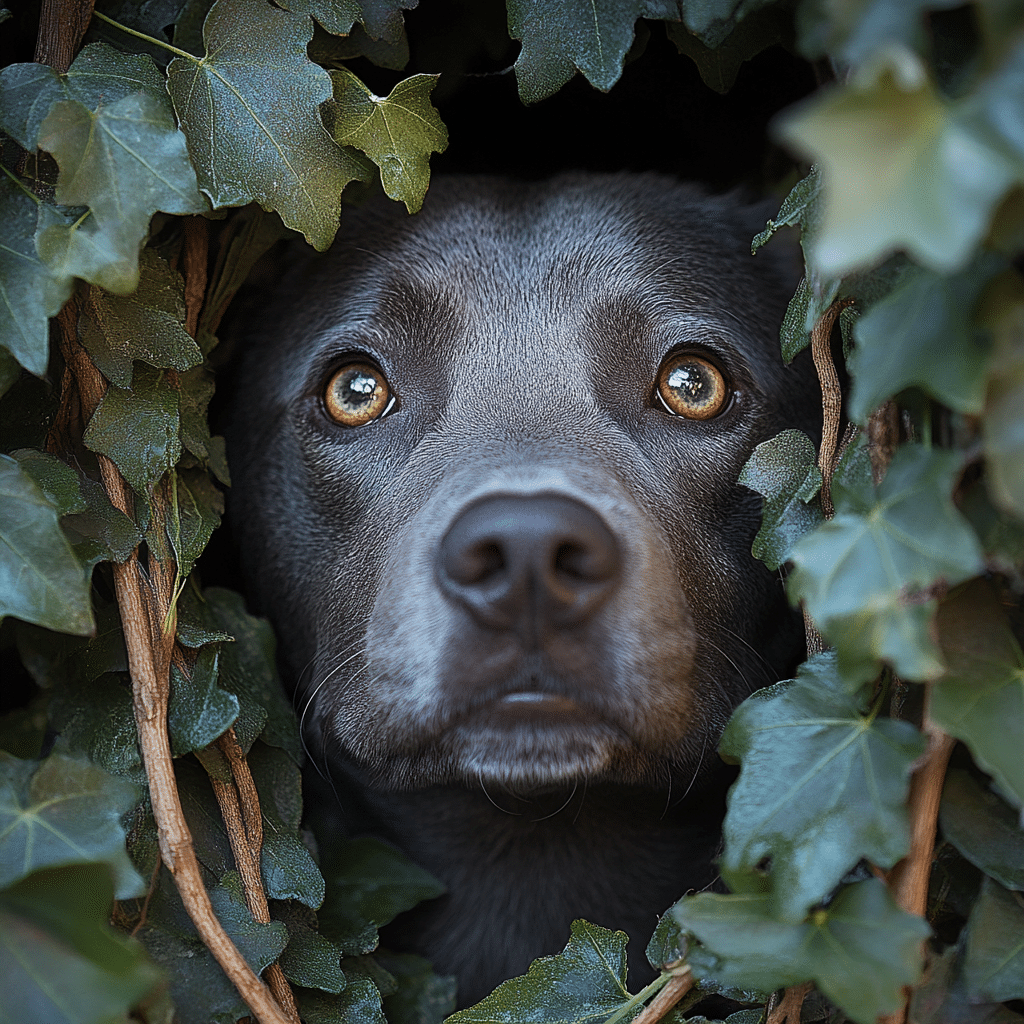When the sunny weather rolls in, it’s an invitation for outdoor adventures with our furry companions. However, while you’re enjoying nature, keep an eye out for poison ivy on dogs. This pesky plant can cause intense discomfort, leaving your pup scratching and miserable. Understanding the symptoms and knowing how to treat exposure is crucial for ensuring your dog stays happy and healthy. Let’s dive into the world of poison ivy and explore how it affects our canine friends.
Understanding Poison Ivy on Dogs and Its Effects

1. Symptoms of Poison Ivy Exposure in Dogs
Recognizing the symptoms of poison ivy on dogs can make a world of difference. If your dog has come into contact with poison ivy, you’ll want to look out for several key signs. Intense itching and scratching are often the first indicators. Your dog might start scratching more than usual, exhibiting restless behavior as they try to alleviate the discomfort.
You may also notice red, swollen rashes around the areas where they had contact with the plant. In severe cases, fluid-filled blisters can emerge, leading to even more irritation. If your dog seems particularly uncomfortable or is pacing around the house, these could be signs of distress related to exposure. Understanding these symptoms can aid in early detection and prompt treatment, giving your furry friend much-needed relief.
2. Top 7 Ways to Treat Poison Ivy on Dogs
If your dog gets a taste of poison ivy, effective treatment becomes essential. Here are seven reliable methods to help ease their discomfort:
By addressing the issue swiftly with these remedies, you can help your dog avoid the next stage of discomfort that poison ivy can bring.

3. Preventing Contact with Poison Ivy
Like any good pet owner, prevention is always better than cure, especially when dealing with poison ivy on dogs. Here are some practical strategies to keep your dog safe:
4. Recognizing the Severity: When to See the Vet
Not all reactions to poison ivy are the same. Some dogs may experience mild symptoms, while others could have severe reactions. Knowing when it’s time to consult a vet is crucial. Signs indicating you should seek professional care include:
Relying solely on home remedies may prolong your dog’s suffering or lead to complications. A vet can provide a customized approach to treatment, ensuring your pet receives the best care possible.
Innovative Wrap-Up
Keeping your canine companion safe from poison ivy is essential for their comfort and well-being. By understanding the symptoms, efficiently treating exposure, and employing effective preventative strategies, pet owners can significantly reduce the risk of serious reactions. Should your dog find itself facing the challenges posed by this hazardous plant, remember that early intervention and proper care are vital.
Consulting your veterinary care team is crucial, not just in times of illness but to maintain overall skin health and nutrition. So, the next time you’re out and about, keep an eye out for those pesky poison ivy plants. Your furry friend will thank you for it!
For more helpful tips on keeping your pet safe, don’t forget to check out resources like Paw Top or explore our insights on different Types Of Siamese Cats. Always stay informed and prepared for whatever adventure life throws at you and your four-legged friend!
Poison Ivy on Dogs: Fun Trivia and Interesting Facts
The Basics and Beyond
Did you know that dogs can be just as sensitive to poison ivy as humans? The pesky plant contains an oil called urushiol, which causes itchy rashes and discomfort. Some people believe that a certain supplement For blood flow might help alleviate irritation, but keeping your furry friends away from poison ivy is really the best medicine. Speaking of discomfort, it’s intriguing to think about how many seasons of The Walking Dead depict characters facing tough environments—not so different from how dogs might react in the wild with irritating plants!
Fun Facts About Reactions
Interestingly, dogs typically don’t react to poison ivy in the same way as humans, since they have fur to protect their skin. However, they can still suffer severe reactions! If you’re out for a stroll and your dog gets into some poison ivy, cleaning their paws immediately is crucial. Imagine how Danny Devito might act with a rash—he’d likely want a remedy that works, just like your pup! And pay attention; a dog’s age can influence how they respond to irritants, much like the Staffy age expectancy we see in various breeds.
Prevention and Care
Prevention is key to avoiding poison ivy on dogs. Keeping your garden clear of these troublesome plants and steering clear of wooded areas during walks can save you both from a world of hurt. After all, nobody wants to spend a weekend remedying itchy skin! If you’re curious about your pet’s diet, you might wonder: Does hamster eat cheese? Just like this question brings up dietary considerations for small pets, it highlights the importance of understanding what we expose our dogs to, including their environments. Remember, if you think your dog may have come into contact with poison ivy, consulting a vet like you’d seek out expert opinions on lesser-known figures like Muhammed Bilal El-amin is always a good choice!



